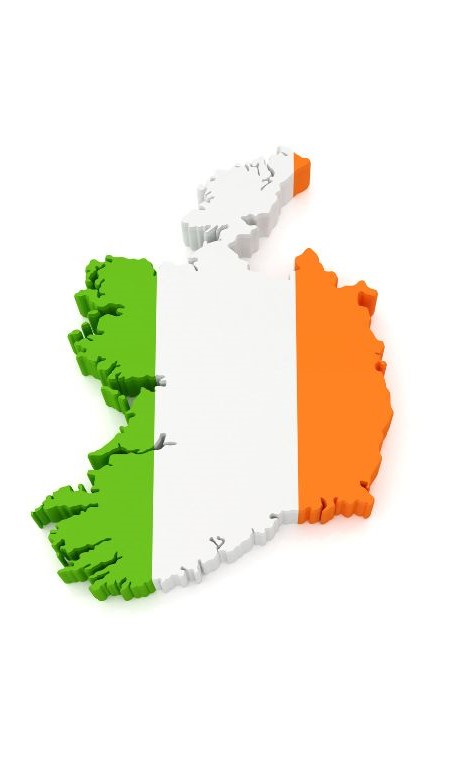Ireland Immigration Requirements and Irish Immigration Lawyers
Do I Need a Visa to Travel to Ireland?

If you're planning a trip to Ireland, understanding the visa requirements is important to ensure a smooth entry. Whether or not you need a visa to enter Ireland depends on your nationality, the purpose of your visit, and how long you intend to stay. This guide aims to clarify the requirements for different nationalities, including British, EU/EEA, US citizens, and others.
Who Does Not Need a Visa for Ireland?
1. British Citizens
British citizens do not need a visa to enter or stay in Ireland. Under the Common Travel Area (CTA) agreement, British citizens have the right to live, work, and study in Ireland without any restrictions on the length of stay. There are no visa requirements or time limits, making it easy for UK nationals to move freely between the UK and Ireland.
2. EU/EEA and Swiss Citizens
Citizens of EU/EEA member states and Switzerland also do not need a visa to enter Ireland. They benefit from the EU’s freedom of movement, allowing them to live, work, and study in Ireland without any time limits. They can stay in Ireland for as long as they wish, with the same rights as Irish citizens.
3. Visa-Exempt Countries
Citizens of certain countries, including the United States, Canada, Australia, and New Zealand, do not need a visa to visit Ireland for short stays of up to 90 days.
These visa-exempt nationals can enter Ireland for tourism, business, or short-term family visits without applying for a visa in advance. However, they must leave the country after the 90-day period unless they obtain a different visa or permit for a longer stay.
Who Needs a Visa to Enter Ireland?
Citizens of non-EEA countries that are not visa-exempt will need to apply for a visa before traveling to Ireland. The type of visa required depends on the length and purpose of the visit.
Ireland Short Stay Visa Waiver Programme
Ireland offers a Short Stay Visa Waiver Programme for nationals of certain non-EEA countries. If you hold a valid UK short-stay visa, you can visit Ireland for up to 90 days without needing a separate Irish visa. This programme is available to citizens of countries including:
| And others | Belarus |
| Bosnia and Herzegovina | China |
| India | Kazakhstan |
| Montenegro | Russia |
| Saudi Arabia | Thailand |
| Turkey | UAE |
| Ukraine | Uzbekistan |
If you qualify for this programme, you can visit Ireland during your stay in the UK without applying for an Irish visa.

Ireland Short Stay ‘C’ Visas
If you do not qualify for the visa waiver programme or are from a country requiring a visa to enter Ireland, you should apply for a Short Stay ‘C’ Visa. This visa allows you to stay in Ireland for up to 90 days and is designed for temporary visits. The specific type of Short Stay ‘C’ Visa you need depends on the purpose of your visit:
- Tourist Visa: For leisure travel and tourism.
- Business Visa: Attending business meetings, conferences, or other professional activities.
- Family/Friends Visa: For visiting family members or friends in Ireland.
- Conference/Event Visa: Attending conferences, seminars, or cultural events.
- Atypical Working Scheme Visa: For specific types of short-term work.
- Exam Visa: For sitting exams.
- Internship Visa: For short-term internships or practical training.
- Join Ship Visa: To join a ship in an Irish port.
- Marriage Visa: For those planning to marry in Ireland.
- Medical Treatment Visa: For receiving medical care in Ireland.
- Performance/Tournament Visa: For participating in performances, competitions, or sports tournaments.
- Training Visa: For attending short-term training courses.
Ireland Long Stay ‘D’ Visas
A Long Stay' D' Visa is required for those planning to stay in Ireland for more than 90 days. This visa is necessary for those who wish to work, study, or join a family member in Ireland. The main types of Long Stay ‘D’ Visas include:
- Study Visa: This is for students enrolled in educational courses in Ireland.
- Join Family Visa: For individuals joining a family member who is an Irish citizen or resident.
- Employment Visa: For those who have secured a job in Ireland.
- Volunteer Visa: Individuals working voluntarily with a registered charity or organisation in Ireland.
Specific visa routes under the Join Family Visa include:
- Spouse/Civil Partner Visa: For spouses or civil partners of Irish citizens or residents.
- Dependent Child Visa: For dependent children of Irish citizens or residents.
- De Facto Partner Visa: For long-term partners of Irish citizens or residents who are not married but in a committed relationship.
Employment Permits for Working in Ireland
If you plan to work in Ireland and are a non-EEA citizen, you must secure an Employment Permit before applying for a Long Stay ‘D’ Visa. Ireland offers several types of Employment Permits, including:
- General Employment Permit: Covers a wide range of occupations.
- Critical Skills Employment Permit: This permit is for highly skilled workers in occupations in high demand in Ireland. It provides a pathway to permanent residency.
- Dependent/Partner/Spouse Employment Permit: This permit allows family members of Employment Permit holders to work in Ireland.
- Intra-Company Transfer Employment Permit: This is for employees transferring from a company branch in another country to Ireland.
- Exchange Agreement Employment Permit: This is for individuals under specific international exchange agreements.
- Internship Employment Permit: This is for students or recent graduates undertaking internships in Ireland.
- Sports and Cultural Employment Permit: For individuals working in sports, culture, or the arts.
- Contract for Services Employment Permit: For individuals working under a contract for services in Ireland.
- Reactivation Employment Permit: This is for individuals who previously held an employment permit in Ireland and are returning to work.
Each Employment Permit has specific eligibility requirements concerning qualifications, work experience, and income levels. Once you have obtained your Employment Permit, you will need to apply for a Long Stay ‘D’ Visa to enter and work in Ireland.

Conclusion
Understanding the visa requirements for travelling to Ireland is essential for ensuring a smooth and hassle-free visit. British and EU/EEA citizens can enjoy unrestricted travel and stay in Ireland, while nationals of visa-exempt countries like the US can visit for short periods without a visa.
For those who do need a visa, Ireland offers various options depending on the purpose of your visit and the length of your stay. If you’re unsure which visa applies to your situation, seeking advice from an immigration specialist can help you navigate the application process and ensure you meet all the requirements to enjoy your time in Ireland.


Expert Help with Ireland Immigration Requirements
Planning to visit or move to Ireland? Let our Irish immigration lawyers guide you through visa requirements and provide tailored support for your application.
Planning to visit or move to Ireland? Let our Irish immigration lawyers guide you through visa requirements and provide tailored support for your application.


